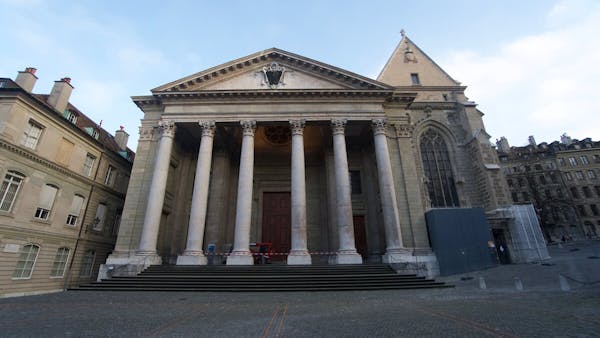“Anyone can become angry,” Aristotle wrote, “that is easy. But to be angry with the right person, to the right degree, at the right time, for the right purpose and in the right way, this is not easy.” In the case of the affair of the placards, this bit of advice would have gone a long way in saving the Reformation in France a lot of unwanted backlash. The debacle started off innocuously enough as a zealous desire to a speed up a slowing movement. While the work of reform was slowly wending its way through France it was rapidly blazing through Germany and Switzerland and the French Protestants were impatient to see the same results in their native land. They consulted amongst themselves but there was a division of sentiment about how to proceed and so they sought counsel from the highly respected French reformer Farel, then exiled in Switzerland. Farel and others encouraged them to push the work forward, full speed ahead, with all guns blazing and what better way to make an impact than to strike at the very heart of Papal ritual by attacking the Mass. This was agreed to and Farel was put forward to write the missive which he did in spectacular fashion, producing a tract which was incandescent with fervent denunciations against the vile practice of transubstantiation. It was a thunderbolt of epic proportions designed to strike down, in one fell swoop, the stranglehold of Rome upon France.
The tracts were printed in two forms, posters to be slathered over every available wall, post and tree and small slips which were to be handed out from person to person. They decided to paper the whole of France under cover of night and on the 24th of October 1534 each man went from street to street quietly putting up his quota of posters. The placards found their way on to the walls of the Louvre, the gates of the Sorbonne and the doors of every Catholic church that they could gain access to. When the people of France lumbered out of their houses the next morning they came face to face with these placards which, to most of the population, were the worst kind of blasphemy against the church. France was plunged into a frenzy of speculation; rumors circulated that the Protestants were behind it and that they would burn every church to the ground and massacre every Catholic they could lay their hands on.
One placard found its way onto the door of the king’s private residence. The breach of security and the audacity of the deed threw Francis I into a rage and he ordered that every single Protestant be hunted out and exterminated. One of the Protestants, a sheath maker by trade, was seized by Jean Morin, the King’s man in charge of the execution. Morin forced the man on pain of death to go from door to door revealing where each protestant lived and every family, from those of low rank to men of learning and letters, were rounded up, arrested and massacred. Those who had not been arrested fled France; artisans, merchants, accountants, bricklayers, professors, all fled the country in droves leaving behind a huge gap in French society. Those who remained looked around them shocked at the volume of Protestants that had been quietly living among them undetected.
The fugitives congregated in Geneva which was fast becoming a stronghold of Protestantism. From there they sent back trained pastors to evangelize France and over a period of 40 years, there were 2 million Huguenot Protestants worshipping in 1250 Protestant churches across the country. The St. Bartholomew’s day massacre followed soon after, leading more Protestant Huguenots to flee France. The religious wars of France would continue from 1562-1598 until the Edict of Nantes was signed awarding the Huguenots substantial religious, political and military autonomy. However this was revoked in 1685 and over the next twenty years, hundreds of thousands of Huguenots fled France to take up residence in the Protestant states of the Holy Roman Empire and elsewhere throughout the world.
Aristotle’s words, mentioned in the first paragraph, taken from the Nicomachean Ethics, are an illustration of the need to bring intelligence to our emotions and wisdom to our approach. Had the affair of the placards been handled differently, the story of the French reformation would have been completely different. As Aristotle would have put it; anyone can speak the truth, that is easy. But to speak the truth to the right person, to the right degree, at the right time, for the right purpose and in the right way, this is not easy and it is a skill we would all do well to acquire.

